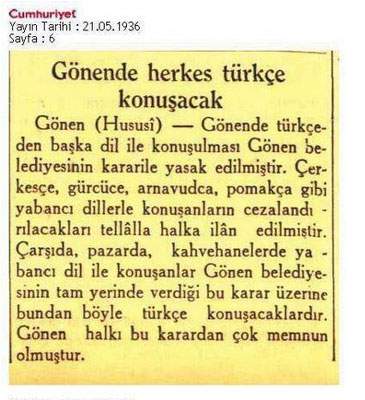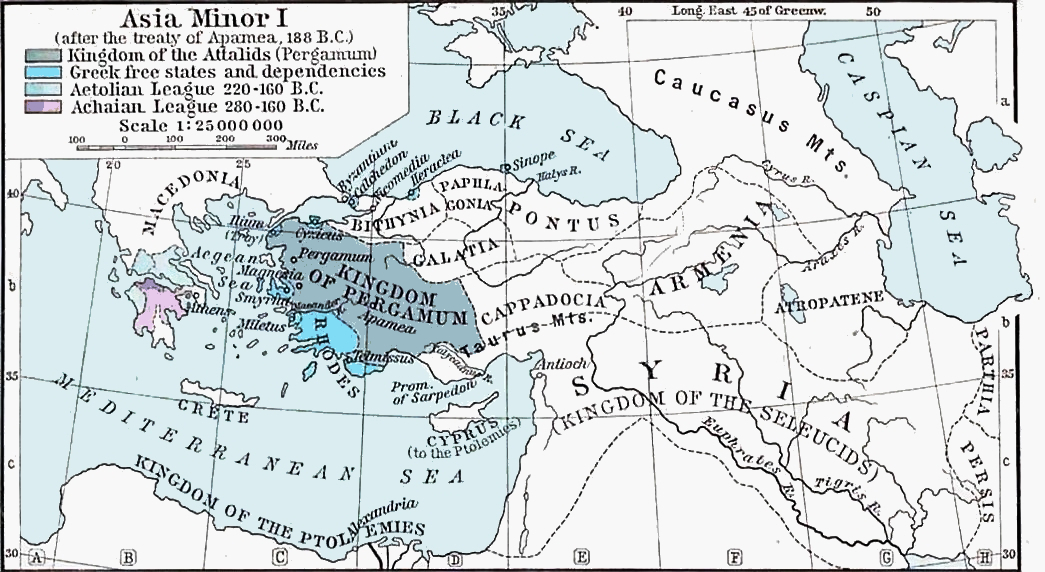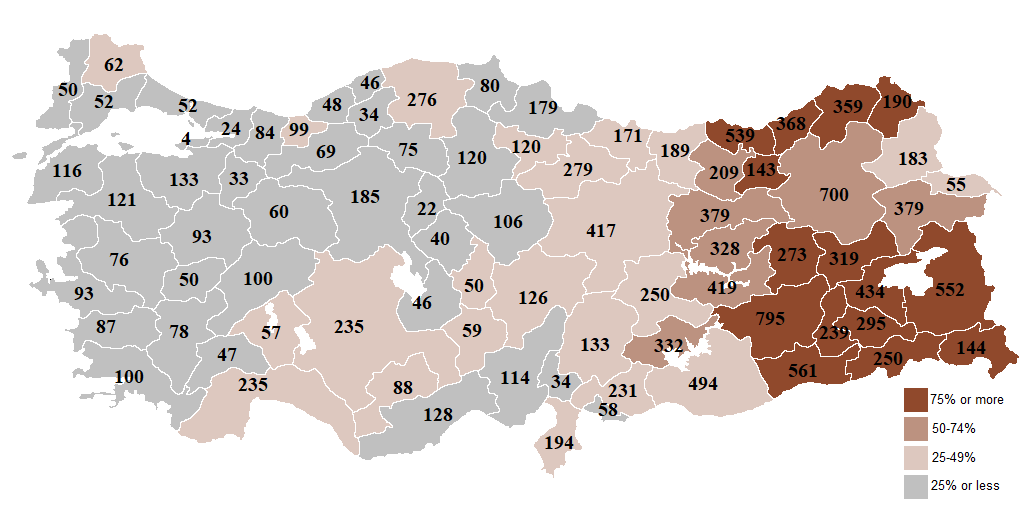|
Citizen, Speak Turkish!
The Citizen, speak Turkish! ( tr, Vatandaş Türkçe konuş!) campaign was a Turkish government-funded initiative created by law students which aimed to put pressure on non-Turkish speakers to speak Turkish in public in the 1930s and onwards. In some municipalities, fines were given to those speaking in any language other than Turkish. The campaign has been considered by some authors as a significant contribution to Turkey's sociopolitical process of Turkification. Political background During the Ottoman Empire in 1911, the Committee of Union and Progress decided to employ the Turkish language in all the schools of the Empire, with the aim to denationalize all the non-Turkish communities and instil patriotism among Turks. The reformation of the state schooling system and of language by the compulsory use of demotic Turkish aimed for the linguistic homogenization of society. The standardization of the Turkish language aimed to sever the link with the Ottoman language and past in o ... [...More Info...] [...Related Items...] OR: [Wikipedia] [Google] [Baidu] |
Turkish Language
Turkish ( , ), also referred to as Turkish of Turkey (''Türkiye Türkçesi''), is the most widely spoken of the Turkic languages, with around 80 to 90 million speakers. It is the national language of Turkey and Northern Cyprus. Significant smaller groups of Turkish speakers also exist in Iraq, Syria, Germany, Austria, Bulgaria, North Macedonia, Greece, the Caucasus, and other parts of Europe and Central Asia. Cyprus has requested the European Union to add Turkish as an official language, even though Turkey is not a member state. Turkish is the 13th most spoken language in the world. To the west, the influence of Ottoman Turkish—the variety of the Turkish language that was used as the administrative and literary language of the Ottoman Empire—spread as the Ottoman Empire expanded. In 1928, as one of Atatürk's Reforms in the early years of the Republic of Turkey, the Ottoman Turkish alphabet was replaced with a Latin alphabet. The distinctive characteristics of the Turk ... [...More Info...] [...Related Items...] OR: [Wikipedia] [Google] [Baidu] |
Bergama
Bergama is a populous district, as well as the center city of the same district, in İzmir Province in western Turkey. By excluding İzmir's metropolitan area, it is one of the prominent districts of the province in terms of population and is largely urbanized at the rate of 53.6%. Bergama center is situated at a distance of to the north from the point of departure of the traditional center of İzmir ( Konak Square in Konak, İzmir) and lies at a distance of inland from the nearest seacoast at the town of Dikili to its west. Bergama district area neighbors the areas of three districts of Balıkesir Province to its north, namely Ayvalık, Burhaniye and İvrindi, İzmir Province district of Kınık and Manisa Province district of Soma, Manisa to its east, while to the south it is bordered by the central provincial of Manisa and two other İzmir Province districts along the coast that are Aliağa and Dikili from its south towards its west. The district area's physical features ... [...More Info...] [...Related Items...] OR: [Wikipedia] [Google] [Baidu] |
Vergonha
In Occitan, ''vergonha'' (, meaning "shame") refers to the effects of various language discriminatory policies of the government of France on its minorities whose native language was deemed a ''patois'', where a Romance language spoken in the country other than Standard French, such as Occitan or the ''langues d'oïl'', as well as other non-Romance languages such as Alsatian and Basque, were suppressed. ''Vergonha'' is imagined as a process of "being made to reject and feel ashamed of one's (or one's parents') mother tongue through official exclusion, humiliation at school and rejection from the media", as organized and sanctioned by French political leaders from Henri Grégoire onward. ''Vergonha'' is still a controversial topic in modern French public discourse where some including successive French governments have denied discrimination ever existed or downplayed its effects; it is a commonly cited example of sanctioned systematic linguicide and cultural genocide. [...More Info...] [...Related Items...] OR: [Wikipedia] [Google] [Baidu] |
Mottos Of Francoist Spain
The mottos of Francoism are mottos which encapsulate the ideals of the Francoist dictatorship. Although the regime had many ideological influences (Traditionalism, National Catholicism, Militarism and National syndicalism), it employed Falangism in its popular movements. Falangist ideology was easily incorporated in the creation of mottos as it is believed to demonstrate a certain reluctance towards political agendas, and to favour empiricism, taking action, and the simplification of ideas. Although these mottos originated from the activity of different right-wing intellectuals and nationalist political parties during the Second Spanish Republic, their use became widespread and proved to be an effective propaganda tool used by the Nationalist faction during the Spanish Civil War (1936–1939) in mobilising public opinion and persuading the population to conform to nationalist ideas. Mottos were also often used as political chants during Franco's dictatorship (1939–1975). As w ... [...More Info...] [...Related Items...] OR: [Wikipedia] [Google] [Baidu] |
Geographical Name Changes In Turkey
Place name changes in Turkey have been undertaken, periodically, in bulk from 1913 to the present by successive Turkish governments. Thousands of names within the Turkish Republic or its predecessor the Ottoman Empire have been changed from their popular or historic alternatives in favour of recognizably Turkish names, as part of Turkification policies. The governments have argued that such names are foreign or divisive, while critics of the changes have described them as chauvinistic. Names changed were usually of Armenian, Greek, Georgian, Laz, Bulgarian, Kurdish (Zazaki), Syriac or Arabic origin. Turkey's efforts to join the European Union in the early 21st century have led to a decrease in the incidence of such changes from local government, and the central government even more so. In some cases legislation has restored the names of certain villages (primarily those housing Kurdish and Zaza minorities). Place names that have formally changed frequently persist in local dia ... [...More Info...] [...Related Items...] OR: [Wikipedia] [Google] [Baidu] |
Animal Name Changes In Turkey
The animal name changes in Turkey is the revision of taxonomic nomenclature of three subspecies by the Turkish Ministry of Environment and Forestry. The name changes removed references to Armenia and Kurdistan in the taxonomic nomenclature of subspecies of each animal. La Recherche Numéros 393 à 398 Société d'éditions scientifiques (Paris, France) - 2006 - Page 96 "Ovis Armeniana devient Ovis Orientalis Anatolicus, Capreolus Capreolus Armenius se transforme en Capreolus Caprelus Capreolus, et Vulpes Vulpes Kurdistanicum, le renard roux du Kurdistan, s'appelle désormais en Turquie Vulpes ..." "The Ovis Armeniana (wild sheep) is now the Ovis Orientalis Anatolicus, while the roe deer, formerly known as Capreolus Capreolus Armenus, has become Capreolus Cuprelus Capreolus. These previous names have disappeared thanks to ..." History and reaction The declared taxonomic nomenclature for the three subspecies is effective for the Turkish Environment and Forestry Ministry. According ... [...More Info...] [...Related Items...] OR: [Wikipedia] [Google] [Baidu] |
Languages Of Turkey
The languages of Turkey, apart from the official language Turkish, include the widespread Kurdish (Kurmanji), the moderately prevalent minority languages Arabic and Zazaki, and a number of less common minority languages, some of which are guaranteed by the 1923 Treaty of Lausanne. History Turkey has historically been the home to many now extinct languages. These include Hittite, the earliest Indo-European language for which written evidence exists (circa 1600 BCE to 1100 BCE when the Hittite Empire existed). The other Anatolian languages included Luwian and later Lycian, Lydian and Milyan. All these languages are believed to have become extinct at the latest around the 1st century BCE due to the Hellenization of Anatolia which led to Greek in a variety of dialects becoming the common language. Urartian belonging to the Hurro-Urartian language family existed in eastern Anatolia around Lake Van. It existed as the language of the kingdom of Urartu from about the 9th centu ... [...More Info...] [...Related Items...] OR: [Wikipedia] [Google] [Baidu] |
Racism In Turkey
In Turkey, racism and ethnic discrimination are present in its society and throughout its history, including institutional racism against non-Muslim and non-Sunni minorities. This appears mainly in the form of negative attitudes and actions by some people towards people who are not considered ethnically Turkic peoples, Turkic, notably Kurds, Armenians, Arabs, Assyrians in Turkey, Assyrians, Greeks and Jews. In recent years, racism in Turkey has increased towards rather Middle Eastern nationals such as Refugees of the Syrian Civil War in Turkey, Syrian refugees, Afghans, Afghan and Pakistanis, Pakistani migrants. Overview Racism and discrimination in Turkey can be traced back to the Ottoman Empire. In the 1860s Some Ottoman Turkish intellectuals such as Ali Suavi stated that: #Turks are superior to other races in political, military and cultural aspects #The Turkish language surpasses the European languages in its richness and excellence #Turks constructed the Islamic civilizati ... [...More Info...] [...Related Items...] OR: [Wikipedia] [Google] [Baidu] |
Kırklareli
Kırklareli () is a city within Kırklareli Province in the East Thrace, European part of Turkey. Name It is not clearly known when the city was founded, nor under what name. The Byzantine Greeks called it Sarànta Ekklisiès (''Σαράντα Εκκλησιές'', meaning ''forty churches''). In Greek language, modern Greek it is known with the same name, too. In the 14th century this was translated to Turkish language, Turkish and called "''Kırk Kilise''". Following the establishment of the Turkish Republic in 1923, sanjaks became cities and on December 20, 1924, Kırk Kilise's name was changed to ''Kırklareli'', meaning ''The Place of the Forties''. The denomination ''Kırklareli'' was already used years before 1924, for example in the contemporary literature concerning the Balkan Wars of 1912–13. The Bulgarian language, Bulgarian name of the town is Lòzengrad (Лозенград) which means ''Vineyard Town''. (see also its Names of European cities in different languages: I ... [...More Info...] [...Related Items...] OR: [Wikipedia] [Google] [Baidu] |
Ankara
Ankara ( , ; ), historically known as Ancyra and Angora, is the capital of Turkey. Located in the central part of Anatolia, the city has a population of 5.1 million in its urban center and over 5.7 million in Ankara Province, making it Turkey's second-largest city after Istanbul. Serving as the capital of the ancient Celtic state of Galatia (280–64 BC), and later of the Roman province with the same name (25 BC–7th century), the city is very old, with various Hattian, Hittite, Lydian, Phrygian, Galatian, Greek, Persian, Roman, Byzantine, and Ottoman archeological sites. The Ottomans made the city the capital first of the Anatolia Eyalet (1393 – late 15th century) and then the Angora Vilayet (1867–1922). The historical center of Ankara is a rocky hill rising over the left bank of the Ankara River, a tributary of the Sakarya River. The hill remains crowned by the ruins of Ankara Castle. Although few of its outworks have survived, there are ... [...More Info...] [...Related Items...] OR: [Wikipedia] [Google] [Baidu] |
Diyarbakır
Diyarbakır (; ; ; ) is the largest Kurdish-majority city in Turkey. It is the administrative center of Diyarbakır Province. Situated around a high plateau by the banks of the Tigris river on which stands the historic Diyarbakır Fortress, it is the administrative capital of the Diyarbakır Province of southeastern Turkey. It is the second-largest city in the Southeastern Anatolia Region. As of December 2021, the Metropolitan Province population was 1,791,373 of whom 1,129,218 lived in the built-up (or metro) area made of the 4 urban districts ( Bağlar, Kayapınar, Sur and Yenişehir). Diyarbakır has been a main focal point of the conflict between the Turkish state and various Kurdish separatist groups, and is seen by many Kurds as the de facto capital of Kurdistan. The city was intended to become the capital of an independent Kurdistan following the Treaty of Sèvres, but this was disregarded following subsequent political developments. Names and etymology Th ... [...More Info...] [...Related Items...] OR: [Wikipedia] [Google] [Baidu] |
Edirne
Edirne (, ), formerly known as Adrianople or Hadrianopolis (Greek: Άδριανούπολις), is a city in Turkey, in the northwestern part of the province of Edirne in Eastern Thrace. Situated from the Greek and from the Bulgarian borders, Edirne was the second capital city of the Ottoman Empire from 1369 to 1453, before Constantinople became its capital. The city is a commercial centre for woven textiles, silks, carpets and agricultural products and has a growing tourism industry. In 2019 its estimated population was 185,408. Edirne has an attractive location on the rivers Meriç and Tunca and has managed to withstand some of the unattractive development that mars the outskirts of many Turkish cities. The town is famous in Turkey for its liver. ''Ciğer tava'' (breaded and deep-fried liver) is often served with a side of cacık, a dish of diluted strained yogurt with chopped cucumber. Names and etymology The city was founded and named after the Roman emperor Hadr ... [...More Info...] [...Related Items...] OR: [Wikipedia] [Google] [Baidu] |




.jpg)





